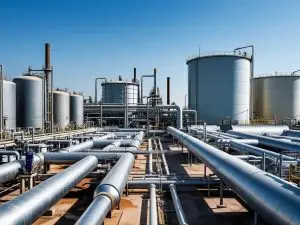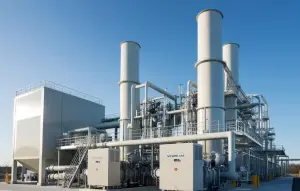Nigeria is one of the largest oil and gas producers in Africa, with petroleum being a key driver of its economy. However, the country faces challenges due to fluctuating global oil prices, environmental concerns, and the urgent need to transition to cleaner energy sources. Understanding these factors is crucial for Nigeria’s economic growth and sustainability.
Impact of Global Oil Price Fluctuations and PIA Implementation

To address these challenges, Nigeria enacted the Petroleum Industry Act (PIA) in 2021. The PIA aims to reform the oil and gas sector by promoting transparency, encouraging investment, and ensuring that host communities benefit from oil revenues. Key aspects of the PIA include:
- Establishment of regulatory bodies for efficient sector management.
- Creation of a Host Communities Development Trust to support local development.
- Encouragement of private sector participation to improve competitiveness.
Gas Flaring Reduction and Utilization
Gas flaring has been a long-standing environmental issue in Nigeria. The practice involves burning excess natural gas during oil production, leading to air pollution and greenhouse gas emissions. Despite government policies to reduce flaring, significant volumes of gas are still wasted.
To combat this, Nigeria has introduced several initiatives, including:
- The Nigerian Gas Flare Commercialization Program (NGFCP) – This program aims to harness flared gas for productive use, such as power generation and industrial applications.
- Expansion of Gas-to-Power Projects: – Utilizing natural gas for electricity generation to reduce dependence on diesel and petrol.
- Liquefied Natural Gas (LNG) Development: Encouraging investments in LNG to export gas and generate revenue while reducing environmental damage.
Shift from Fossil Fuels to Cleaner Energy Alternatives
As global energy trends shift towards sustainability, Nigeria is also working to reduce its reliance on fossil fuels and explore cleaner alternatives. Some of the key areas of focus include:
- Renewable Energy Growth: Expanding investments in solar, wind, and hydropower to supplement Nigeria’s energy needs.
- Green Hydrogen and Biofuels: Researching and promoting alternatives that can reduce carbon emissions.
- Electric Vehicles (EVs) and Cleaner Transport: Encouraging the adoption of electric vehicles to reduce dependence on petrol and diesel.
The government has also launched the Decade of Gas Initiative, which promotes gas as a cleaner transitional fuel before fully adopting renewable energy.
Conclusion
Nigeria’s oil and gas sector is undergoing major reforms to ensure economic stability, environmental sustainability, and energy transition. 